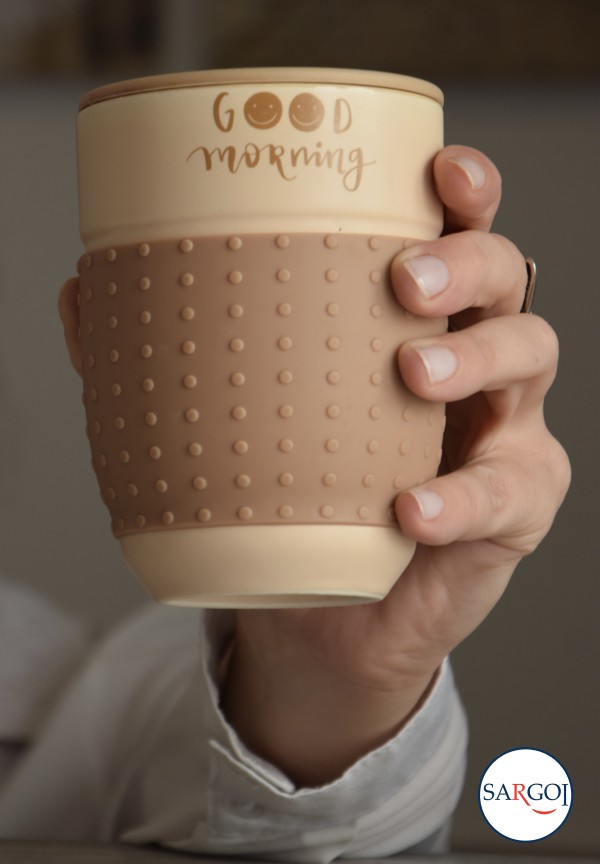How many memories come to mind when we say just one word - tea. Some people remember warm family evenings, while others associate tea with a certain tradition. Different types of tea allow not only connoisseurs but also ordinary people to enjoy this drink. There are various tea drinking traditions around the world that are passed down from generation to generation.
Чому потрібно вивчати англійську мову: шість беззаперечних доказів
Набридло вивчати англійську мову? Тоді прочитайте про те, чому потрібно вивчати англійську мову і почнете англійською жити. Тут ви знайдете прості вправи та поради, з якими легко перейдете на новий рівень
Let's go on a journey through the world of tea together, explore different types of tea and dive into the tea drinking traditions of different countries.
-
Green Tea
One of the most popular types of tea, it is an excellent source of antioxidants. Its taste is deep and rich, and it can be fresh or herbal.
-
Black Tea
Made from Indian or Chinese tea leaves. It often gives energy due to its caffeine content, making it a popular drink for morning consumption.
-
White Tea
White tea has a very delicate flavour palette and low caffeine content. It is almost not subjected to mechanical and thermal processing, so it can be considered the healthiest of all Chinese teas. It is extracted from the young leaves and buds of the first tea harvest. White tea is quite expensive, so it is not as popular as other types of tea.
-
Yellow tea
Yellow tea is similar to green tea, but there is a significant difference in the length of the drying and fermentation stages.
-
Blue tea
Decaffeinated herbal tea will be remembered not only for its taste but also for its blue colour.
-
Oolong tea
This tea has taken a place between green and black tea, retaining the best features of both. The flavour can range from a fresh herbal note to a rich and delicate aroma.
-
Herbal and fruit tea
Mixing tea with various herbs, fruits and spices creates a special drink.
Now let's move on to the traditions of tea drinking. Those people who are lucky enough to attend a tea ceremony will remember this event for the rest of their lives. The emotions, the taste of tea and the atmosphere that prevails at such events are unique, and one might even say fairytale-like.
-
English five o'clock tea
Tea drinking in Britain is a real ritual event. The custom of drinking tea at 17:00 arose in the early 19th century, when this tradition was first started by Anne Russell. During this period, from 14:00 to 20:00, people began to feel hungry, so they needed a light snack (afternoon tea). The tea party was held at a small table, usually by the fireplace, and the dishes had to be from the same set. Tea was brewed in a special way. Much attention was also paid to etiquette. One of the interesting things was that if the tea party was held at a low table, then when drinking tea, a saucer had to be lifted along with the cup. Over time, the tradition of tea drinking spread among ordinary people, not just aristocrats. Today, the British are not averse to drinking tea at any hour, but many of them prefer high tea, which takes place after 5pm.
-
Chinese tea ceremony
Chinese tea culture is significantly different from other tea rituals. Gongfu Cha is a complex ritual of making and drinking tea, which includes numerous steps. The tea ceremony requires adherence to four basic principles of the human condition: calmness, purity, respect and harmony. This tea ceremony is long and very beautiful. It is not customary to talk while drinking tea, you should enjoy the silence and taste of tea.
-
Japanese tea ceremony
Tado is the name given to tea drinking in Japan. The tea ceremony is held in special clothes and in compliance with strict rules. Traditionally, matcha tea (green tea ground into powder) is used. The aroma and taste of tea is revealed in complete silence and harmony.
-
Indian tea drinking
Most people associate tea drinking in India with masala tea, and for good reason. Traditional black Indian tea is usually used to make this drink. The main difference between this drink is the use of a wide range of spices and milk.
Most people associate tea drinking in India with masala tea, and for good reason. Traditional black Indian tea is usually used to make this drink. The main difference between this drink is the use of a wide range of spices and milk.
International Tea Day is celebrated in different countries around the world on different days and times of the year. Some countries celebrate Tea Day on 15 December, others on 21 May. This is an unofficial holiday, so Ukrainians can join the celebration on one of these days and enjoy the taste of tea. In the English-speaking community at SARGOI, students and teachers do not forget about the traditions of other countries' celebrations thanks to a unique Advent calendar. At SARGOI, you not only learn English, but also develop comprehensively, so if you want to learn English in a quality and interesting way, join us! Online English courses with a native speaker can start with a cup of English tea at a time that suits you.








